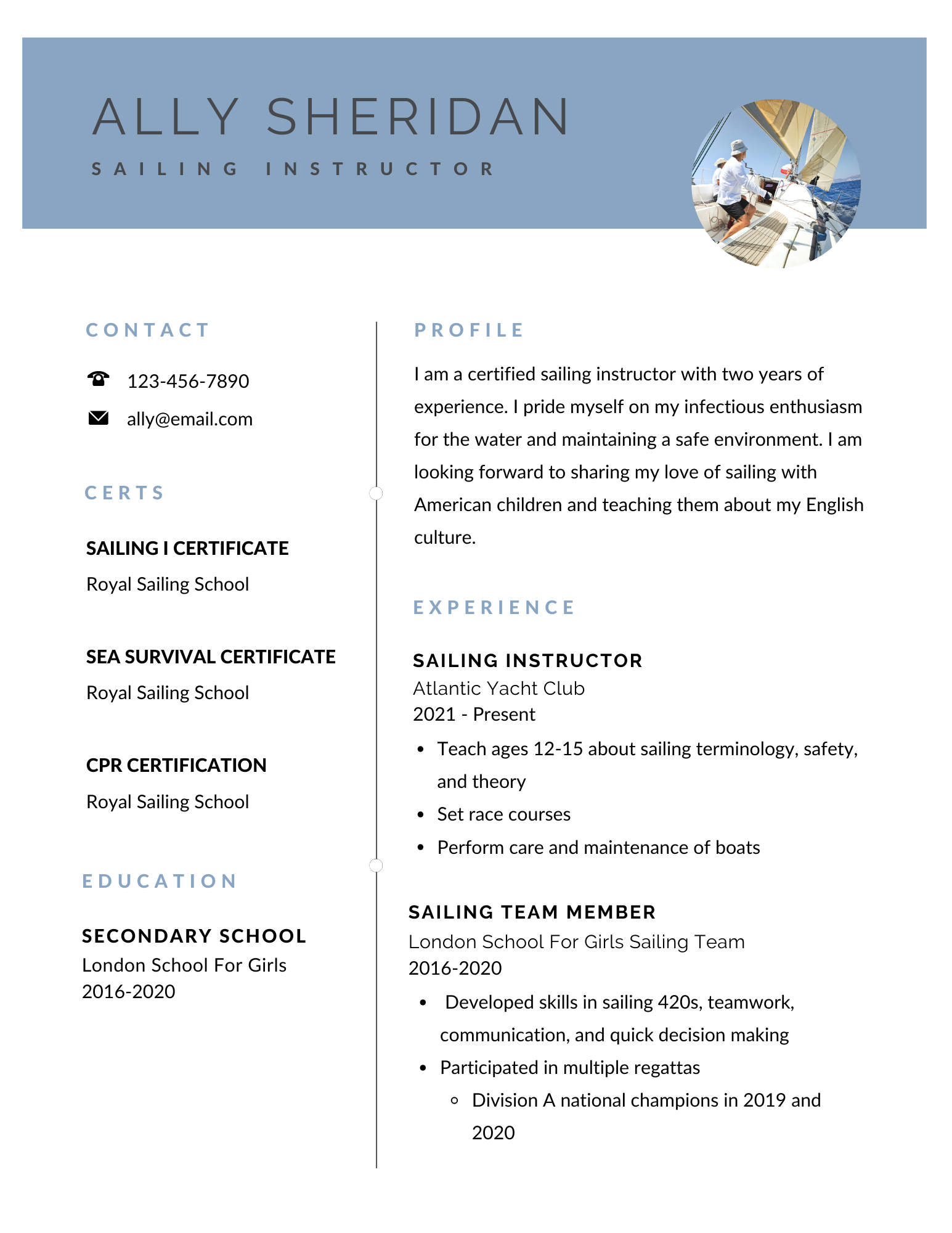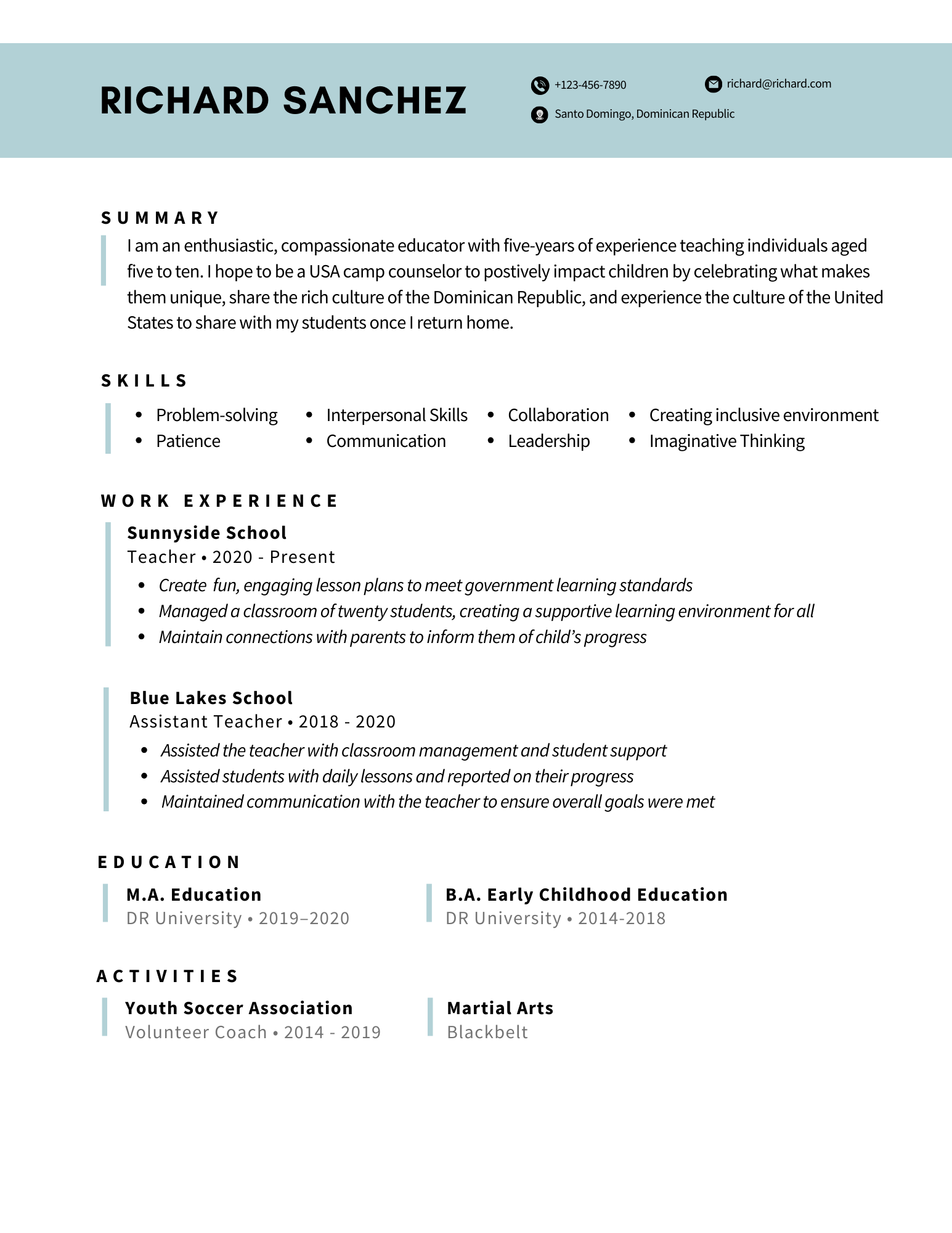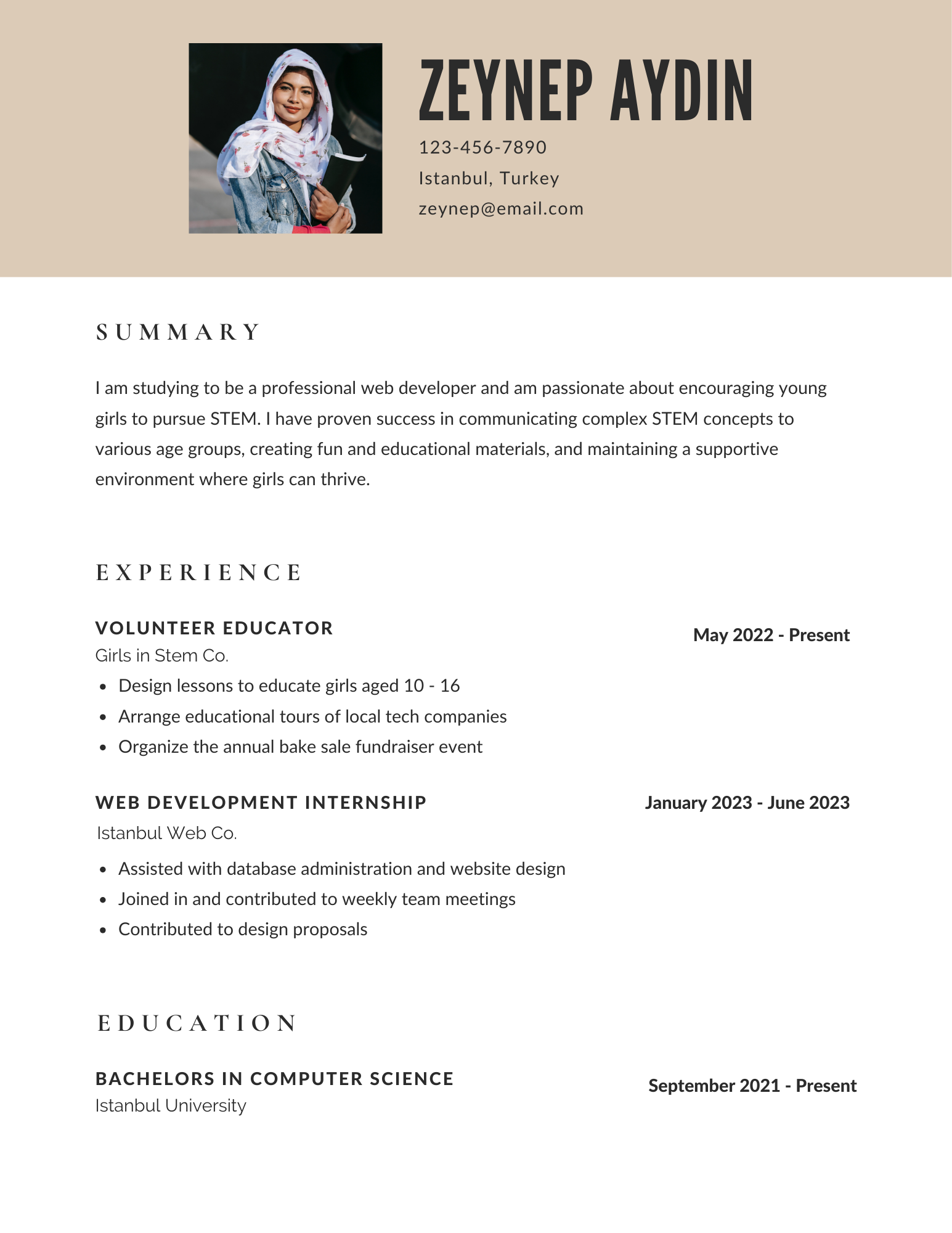LifeTRAVELED’s Guide To Writing An Effective Camp Counselor Resume
The resume is your first impression with camps, and we want you to succeed in communicating your personality and skillset while adhering to American resume norms. Therefore, we have created the following guide to assist you during your resume writing process. We advise all applicants to revise their resume specifically for the camp counselor program. The resume submitted to camps should be tailored to exhibit why you’d be a good fit for a camp counselor role. With each section, you should ask yourself how the information you're providing illustrates your ability to be an exceptional camp counselor.
Resume Design
When designing your resume, keep the layout simple and easy to follow. Camps are viewing numerous resumes, so it’s important to build your resume in an effective way; otherwise, the camp may move onto the next resume. If you want or need guidance, there are many free resume templates available for customization (example: Canva). The resume should be broken up into clearly defined sections; use different sizing, bold, italics, or underlining to help with this. Ideally, a resume is one page, and the maximum is two pages. Ensure everything is in proper alignment and the alignment is maintained across sections. The text size should be 10pt to 12pt. If you need to go smaller, delete content instead. Do not go bigger, even if the entire page is not filled. The font should be consistent throughout; the only exception is if you are using a different font to label sections. A few examples are found below:
Introduction
The top section of your resume should include an introduction (summary, profile, objective, etc.) which can summarize your education and/or experience, explain why you’re seeking the camp counselor role, and show your personality. This section should be brief but pointed in the information it’s communicating. There are many examples to follow online, but customize it to your personal voice.
Education
In the education section, list your education from secondary school onwards. Education prior to secondary school is not relevant. When listing your education, you must include the institution name, degree/certificate (if post-secondary), and years of attendance. You do not need to list every course you took at an institution. The education listings should be in reverse chronological order. Keep in mind that Americans are not familiar with the education system in other countries.
Experience
The experience section can include paid positions, internships, and volunteer positions. Curate this section to be most relevant to the camp counselor role. If you have numerous positions that would increase the length of your resume past one or two pages, be selective in the roles that you include. When listing experience include the company name, role title, duration, and responsibilities. With responsibilities, use this as an opportunity to share skills you built that would be applicable to the camp counselor role. You should also include key achievements within your roles that demonstrate skills camp desire in their counselors such as leadership or proactiveness. For example, leadership could be exemplified if you were in your university’s drama club and were promoted to club president in senior year and proactiveness could be shown if you initiated a recycling program at your volunteer organization. The experience listings should be in reverse chronological order.
Skills
Resumes may have a skills section that highlight your hard (ceramics, baking, computer science, etc.) and soft (communication, team-work, etc.) skills. With hard skills, more skills do not make a better resume. The skills should only be those you are actually skilled in, meaning you have dedicated significant time to developing yourself in the skill. With soft skills, be thoughtful about your personality and what skills you possess that would make you an exceptional camp counselor.
Interests
The interests section is your opportunity to share what brings you joy - hiking, trivia, sewing, documentaries, etc. These interests show your personality to the camp and can be a conversation point for your interview.. Unlike skills, you don’t have to have any education or practice with interests - they’re just something you like to do, no matter how proficient you are.
References
Please do not include a reference section on the resume, as these are provided as part of the application process.
Proofreading
Triple check your resume! Mistakes can be distracting or give the impression that you lack attention to detail, so you want to ensure there are no errors within your resume.



